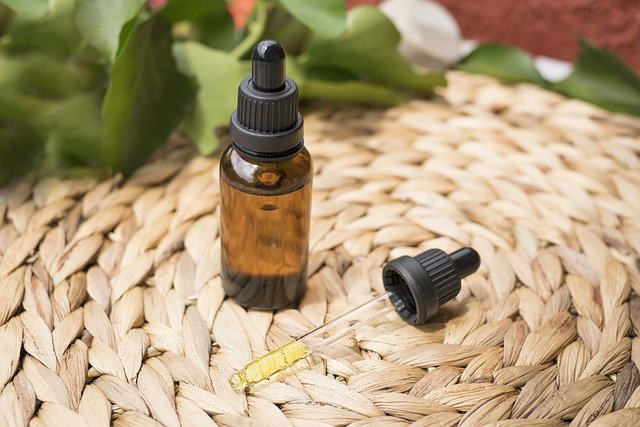By Michael Tatz, Co-Founder Resilience CBD
CBD product popularity has been on the rise. Almost all states—excluding only eight—have legalized marijuana in one shape or another. However, CBD oil, an oil derived from the cannabis plant, is legal in all 50 states. But knowing what to buy can be confusing for new cannabis consumers, especially since there are many different labels of CBD products.
CBD products may seem similar, but they are actually very different upon closer examination. Therefore, it’s important to know what you are buying. One of the more glaring differences are the types of oil being used within various products.
You’re likely to come across labels offering one of three different types of CBD products: full-spectrum, broad-spectrum, and isolate. Here’s a basic explanation behind these three varieties.
Taking A Closer Look at: Full Spectrum CBD
A full-spectrum CBD product contains all the cannabinoids and terpenes that make up the hemp plant. When all the cannabinoids and terpenes are present, and working together, one is said to achieve the “entourage effect”—which is what some believe is the maximum therapeutic benefit received from the plant.
What’s most important to know when using a full-spectrum product, is that it does contain all cannabinoids. That means it has THC. That’s right. In fact, there is no such thing as a full-spectrum product without THC.
Therefore, if you’re a professional athlete, first responder, or someone who receives random drug tests, you could put yourself at risk of testing positive when using a full-spectrum CBD product. But no worries. There are still broad-spectrum and isolate products.
What is Broad-Spectrum CBD?
Broad-spectrum CBD is a mix between a full-spectrum product and a CBD isolate. Similar to a full-spectrum product, a broad-spectrum product contains many of the cannabinoids and terpenes that make up the hemp plant.
However, all the THC is completely removed from a broad-spectrum product. So broad-spectrum is 100-percent THC free, which has been tested and verified through lab results. Because a broad-spectrum product contains the full spectrum of cannabinoids and terpenes, just without any THC, it is believed to deliver a similar “entourage effect” as a full-spectrum oil.
Finally, Let’s Talk About Isolate CBD
An isolate CBD product contains CBD in its purest form. It’s produced by singularly extracting the CBD (cannabidiol) out of the hemp plant and isolating it away from all the other cannabinoids, terpenes, flavonoids, and plant matter. Because of this extra step in the extraction process, isolate CBD products are typically THC-free.
Isolate CBD is the most popular CBD in the U.S. because it is THC-free. It provides an opportunity for people who undergo random drug screening to use isolate CBD products with the confidence they won’t test positive. Even so, it is always important to verify the third-party lab results from any company you purchase from, to insure there is, in fact, no THC in the product.
So Which Type of CBD Should You Use?
There is no “best” oil or type of product. Rather, everyone has different needs, requirements, and desired results from using CBD. Here is the best advice I have for people:
If you’re taking an ingestible product, and don’t care about having trace amounts of THC in your system, then you might as well use a full-spectrum product. Although more research needs to be done, if there’s any truth behind the entourage effect offering enhanced therapeutic benefit, then take the opportunity to take advantage of it.
However, if you may be subject to random drug testing, it’s my suggestion to use either an isolate or broad-spectrum product. You still get to experience the amazing, potential benefits of CBD without the risk of having THC in your system.
From a topical standpoint—lotions, creams, balms, bath products—what’s most important is the quality of the product, not type of oil. Most topical products contain either broad-spectrum or isolate oil and can provide incredible results.
So, with this CBD knowledge, go ahead and start consuming smartly and enjoy.

About the Author
Michael Tatz is a Chicago native who left the “Windy City” to attend the United States Military Academy at West Point where he was a four-year member of the Army’s nationally ranked wrestling team. After graduation, Michael was commissioned as an Air Defense Artillery officer and served in numerous units providing global air defense. In his final role, he served as a Deputy Director for U.S. Strategic Command/NORAD providing defense of the United States from a nuclear missile attack.
After leaving the military in 2012, Michael earned his MBA from Rice University and began working for Goldman Sachs after graduation. His passion for building businesses lead him to California pursue an opportunity to work in the sports & entertainment industry. After personally benefitting from the power of CBD from injuries suffered while in the Army, Michael wanted to share this incredible supplement with people across the world, specifically people who value health & fitness. Today, as the Co-Founder of Resilience CBD, Michael speaks across the country about how CBD can benefit athletes and encourages everyone to “climb their personal Everest”.
